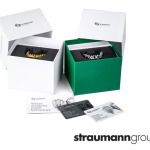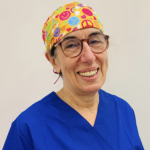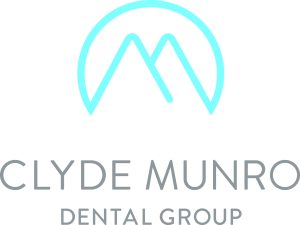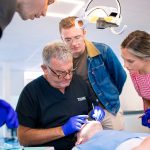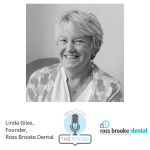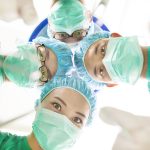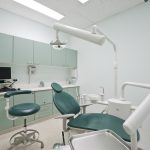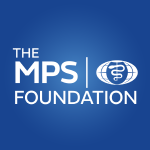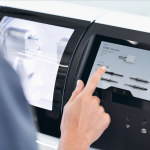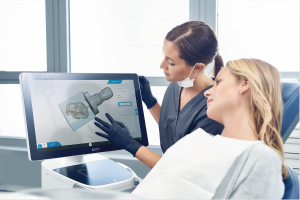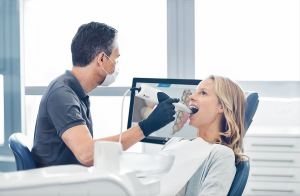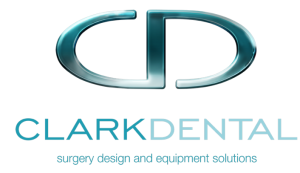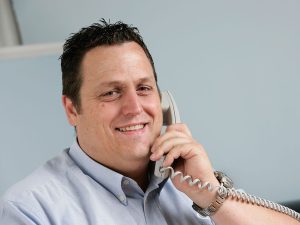Many dental professionals will agree that providing patients with high-quality care on a daily basis is demanding. Dentistry offers a number of fantastic opportunities, but it is not without its challenges. Without a properly managed work life balance, a dentist’s work can become stressful, causing them to feel overwhelmed and, eventually, burnt-out.[i] As such, it’s important to understand why burn-out occurs, what it is, and techniques that might help prevent it.
What is burn-out?
According to the World Health Organization,[ii] “burn-out is a syndrome conceptualized as resulting from chronic workplace stress that has not been successfully managed.” Those with burn-out may lack energy, feel negative towards their job, and perceive their professional worth as low.[iii] Work which puts a person under high pressure is likely to lead to burn-out, especially if this is not effectively managed. Recent studies suggest that dentists face physical and emotional problems related to stress.[iv] These include high rates of cardiovascular disease, ulcers, colitis, hypertension, lower back pain, eye strain, alcoholism, drug addiction, depression, and suicide.[v]
In a profession which is very aware of the effects that stress and anxiety have on their patients, it’s important that dentists consider the ways they manage their own stress – helping to improve their own health, prevent burn-out, and allow them to provide their patients better care.
Managing stress and preventing burn-out
Dentists often lead very busy lives, with long days in the practice sometimes making it feel impossible to take time for themselves. But, in order to do their best work, dentists must consider the ways they can look after their own health and manage stress. So, how can they do this?
Exercise
While it might feel difficult to make time to exercise regularly, saving just half an hour per day to exercise can offer the body a wide range of mental and physical benefits.[vi] Working out boosts serotonin and endorphin levels, triggering a positive feeling,[vii] and it provides a dedicated break from work. Exercising regularly doesn’t have to mean extreme sports, but can be tailored to the individual’s preferences – attend classes at the gym, go for early morning runs, or even try yoga (a great tool for stress management!). For me, personally, I have been addicted to Peloton and find time to do a 30-minute ride on a daily basis. As a result, I feel I have more energy, and I have no aches and pains.
Sleep
Sleep is crucial for recovery, and can help people live longer and healthier lives.[viii] Experts recommend that most adults get between seven and nine hours per night[ix] for a positive impact on the heart and circulatory system, metabolism, respiratory system, and immune system.[x] However, it’s not only the quantity of sleep that’s important, but the quality too. Interrupted sleep can be detrimental to health, with those who have sleep apnoea experiencing multiple interruptions to deep sleep stages every night, contributing to anxiety and depression, weight gain, and heart disease.[xi] As such, it’s important to consider the quality of sleep, and aim to get a good night’s sleep to experience its full benefits. Books I have read and recommend to others on this are “Sleep Smarter” by Shawn Stevenson and “Why We Sleep” by Matthew Walker.
Diet
Eating a balanced diet is essential for enabling the body to perform optimally.[xii] While it may be more convenient to eat fast food between patients, it is beneficial to choose a healthier option at lunch time which provides the energy needed to power the rest of the day.[xiii] This is also a great opportunity to step outside for fresh air, and give yourself a break in the day.
The value of community in dentistry
An aspect of the work that many dentists may not think contributes to burn-out is isolation and confinement. While this comes with the nature of the job, lots of time spent alone in the surgery carrying out intricate and meticulous procedures can be mentally and physically challenging. It can lead to strain on the body and fatigue, making regular breaks all the more important. Much time spent alone can also take its toll. Many dentists do not have the same opportunities as other professionals to share and solve problems with colleagues – with the rise of social media dentistry exacerbating a competitive side of the profession.[xiv]
As such, finding a community of professionals can be incredibly beneficial. The Association of Dental Implantology (ADI) is ideal for those with a special interest in implants at any stage in their careers. The Association encourages socialisation, networking, and education – supporting individual growth and learning. The ADI offers its members free attendance to the Members National Forum, discounted rates at ADI events, and access to the ADI Members-only Facebook Group – where dentists can ask the community for advice.
In order to provide the best care to patients, dentists must first take care of themselves. Burn-out can lead to low job satisfaction, and leave dentists feeling distant from their work, so avoiding this is essential. By enriching both their work and personal lives, setting achievable and reasonable goals, continuing education, and spending time with others, levels of stress may be reduced.
For more information, please visit www.adi.org.uk
Dr. Zaki Kanaan President ADI
Dr Zaki qualified from Guy’s Hospital, London, in 1996. His main interests lie in all aspects of Cosmetic Dentistry with a special interest in Dental Implant Treatment, where he has achieved a Masters Degree from the GKT Dental Institute in 2001.
[i] https://www.colgateprofessional.com.au/dentist-resources/advocates-for-oral-health/burnout-and-self-care-in-dentistry#
[ii] https://www.who.int/news/item/28-05-2019-burn-out-an-occupational-phenomenon-international-classification-of-diseases
[iii] https://www.who.int/news/item/28-05-2019-burn-out-an-occupational-phenomenon-international-classification-of-diseases
[iv] https://www.oralhealthgroup.com/features/stress-in-dentistry-it-could-kill-you/
[v] https://www.oralhealthgroup.com/features/stress-in-dentistry-it-could-kill-you/
[vi] https://www.colgateprofessional.com.au/dentist-resources/advocates-for-oral-health/burnout-and-self-care-in-dentistry#
[vii] https://www.oralhealthgroup.com/blogs/5-top-self-care-tips-for-dentists-dealing-with-stress/
[viii] https://askthedentist.com/8-hour-paradox/
[ix] https://www.nhlbi.nih.gov/health/sleep/how-much-sleep
[x] https://www.nhlbi.nih.gov/health/sleep/why-sleep-important
[xi] https://askthedentist.com/8-hour-paradox/
[xii] https://www.colgateprofessional.com.au/dentist-resources/advocates-for-oral-health/burnout-and-self-care-in-dentistry#
[xiii] https://www.oralhealthgroup.com/blogs/5-top-self-care-tips-for-dentists-dealing-with-stress/
[xiv] https://www.oralhealthgroup.com/features/stress-in-dentistry-it-could-kill-you/





